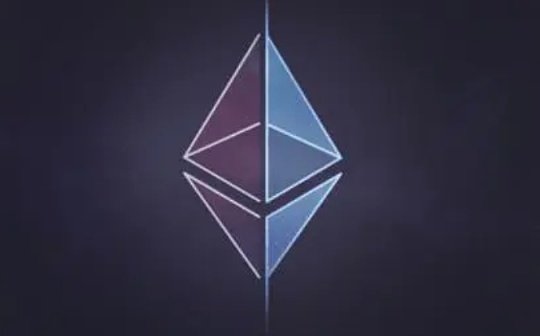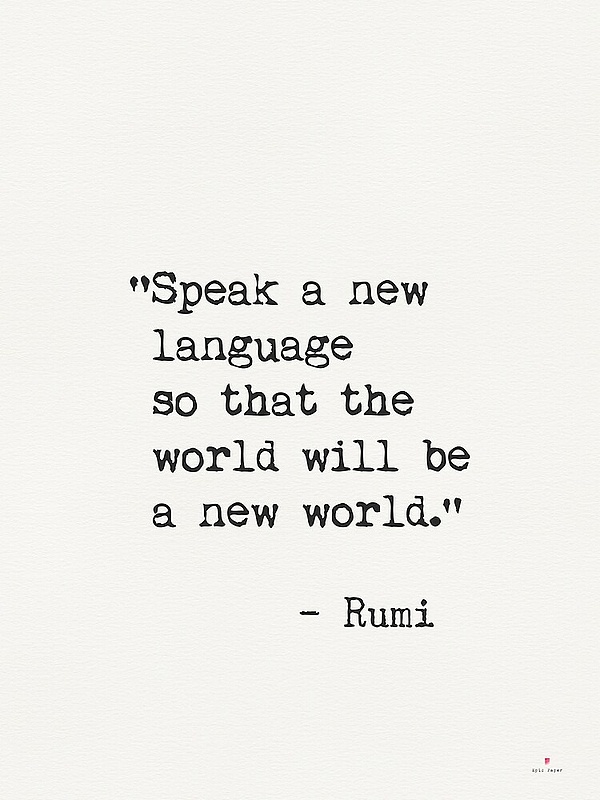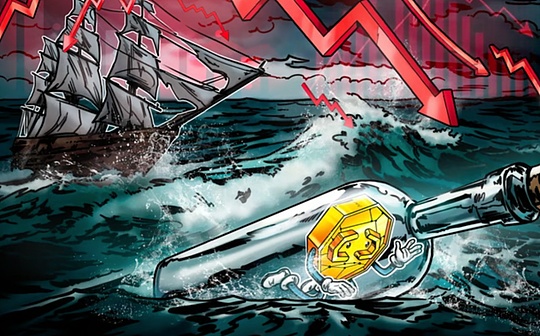
Translator’s Preface
What is Ethereum?Putting aside the technical level, Ethereum is a group of thinkers and philosophers who are conducting experiments to transform the economy and society with freedom, openness and a yearning for a decentralized world. Perhaps this is just a “dream”.But as the article says, it is precisely because no one has tried that we have to go deep into unknown areas, so I think this is more like a thought experiment and a cultural movement.I remember seeing a sentence on Kernel’s website, I can’t find the specific source. It roughly means that we don’t talk about technology, because technology is constantly changing, and only thoughts can be eternal.Let us appreciate these eternal thoughts when translated articles this week!
Overview of this article
This article is Ethereal Dreamers, authored by Kernel Community.The full text is about 4800 words in total, and it is expected to take 35 minutes to finish reading this article.
Content of the text
Ethereal Dreamer
We are the creators of music.
We are dreamers of dreams,
We are those who sleep in the long river of time,
The history buried in the past of the earth,
We built Nineveh with sighs,
The Tower of Babel was built with laughter;
And they were destroyed with prophecy,
To declare the value of a new world to the ancient world;
Because every era is a dying dream,
Or a dream about to be born.
——《Ode to Arthur O’Shaughnessy[1]
How does this fit with Kernel?
This briefing is in a different form than anything else you find in the syllabus.This is because when talking about the form of a common dream, it is impossible not to consult many different people, listen to multiple voices, opinions, perspectives, and their personal experiences.So we invite Mihai Alisie, Karl Floersch, Rhea Myers, Virgil Griffith, Simon de la Rouviere, Kei Kreutler, Toby Shorin, Laura Lotti, and Sam Hart to step on the stage, and work with us to break through time limits and try to uncover our common ground.veil of invisible hope, thus better understanding its form.
The intention of this post is to touch on and foreshadow the many things we will discuss this week and in the coming weeks.We especially hope it helps you understand better:
1. Create meaningful currency.
2. Common values and diverse values.
3. Code, law, and how to survive at all levels in between [2].
? We are learning to dream with an open mind… Everyone is welcome to create together.
The passionate passion
Before Ethereum was launched, this dream was defined as a combination of reflection, introspection, meaning and common value.Mihai wrote [3]:
“In the process, it makes us reflect on our values while examining ourselves and asking ourselves what this project actually means to each of us and to our collective. Through these long soul explorations, we realize that most of the twoThe meta-opposition ultimately boils down to one question: for profit or not for profit?”
It can be said that the result of all these early reviews is that we think that creating money is more fun and fun than making profits.We mean: Ethereum means you can create money yourself, rather than be suspicious of money made by others.Mihai continues to point out that we
The motivation is not money, but the passion for the crazy idea of a free, open and decentralized world.That’s why we finally feel happy, and what makes us get up and devote ourselves to this project, and we are proud to say that today we are building tomorrow.
As we said last week in Play of Pattern [4],
Since this attempt has never been tried, there are no correct or wrong answers and no specific experience to refer to.We are delving deep into unknown areas.
Learn language
One way to start a random journey through this unknown territory is to jump to Karl Floersch’s early work, he suggests [5],
? Ethereum is the government of the Internet, and smart contracts are its laws.
However, “law” means substantive content, not just form, which means we are more concerned about what we can actually do than what we may do.Anyone can create laws on Ethereum, and if you learn this language, you are actually a member of the legislature.Moreover, the administration is simply a network of computers that perform meaningful remarks at agreed fees.
Making a law does not mean that everyone will comply with it.All Ethereum laws are optional.In order for your law to be adopted, you need to convince your fellow people to abide by your law in their interests.Good laws will provide unique advantages for those who abide by the laws.They allow for cooperative actions and greater trust within the group.
A good example of the difference between formal, prescriptive law and optional, substantial law is freedom of action.Most modern democracies take this freedom as a criterion in formal ways: anyone can travel through any public land as they please.However, you still have to pay for your own travel and accommodation.Therefore, in practice, only a relatively small part of the population can achieve this freedom.The earlier communities expressed this issue very differently: they did not have formal freedom of movement, but actively cultivated a culture of hospitality with strangers [6] because this ensured that anyone could truly be willing to do so.Travel freely.In this simplified example, one can begin to see that in a “friendly society [7]” mutual assistance is the basis of individual autonomy, and we will be in module 4 [8] and as we move to a broader perspective of reciprocity [9] Review this idea.
The word “good” here no longer implies some moral stance: it is related to the computable effect of any executable statement.The shift in how we understand the term “law” is most directly reflected in the fact that “violating” the law on Ethereum is impossible—because the law is written in an enforceable and clear language, and the Ethereum virtual machineThe nature of (EVM) is certain – but it is possible to not comply with the law.
This is the heart of the entire “code is law” debate.As Rhea Myers [10] says, literally, this is either a kind of “liberal attempt to interpret ambiguous human language by reducing the cost and uncertainty” or a kind of “replaced with binary logicdystopian alternatives to rights and guarantees”.However, Karl points out something different.We can reduce coordination costs by limiting the ambiguity of trading language, but global coordination requires a broader perspective that any transaction is voluntary: you do not need to sign deals that interact with contracts you are unwilling to bind yourself.To understand that this is neither liberal nor pure logic, one needs to learn [11] a new language, and the most effective way is the fiery passion embodied by Karl and Mihai.

“Speak a new language, and the world will become a new world” – Rumi
Wittgenstein said [12] “There is no pure philosophical problem, only language misunderstanding.” A global computing architecture can reduce this misunderstanding in economic interactions, although ultimately it is up to those of us who sign it, what kind of laws can make usA common state has meaning.As Rhea said elsewhere: “Ethereum allows anyone to define what art is [13].” This is a point we will explore again in Module 4 [14].
Karl’s post discusses the government’s legislative and executive branches and proposes: “For the first time, we can easily apply scientific methods, trial and error to governance through low-cost, selective participation and non-violation laws [15].” However,This seems to ignore the judiciary.The function of justice is to interpret the law, resolve disputes and evaluate the outcome of a case.However, in this new medium, interpretation and evaluation are no longer ideological issues, but engineering challenges [16].The way disputes work is different, because
Laws are optional, meaning they are subject to supervision by every citizen.The law is unbreakable, which allows us to accurately measure its effectiveness.The creation of laws is available to everyone, which means that new laws can quickly replace old invalid laws.Then we repeat.We will be able to turn governance into a science and discover laws that are effective and fair for all.
It is worth noting that this idea has received a lot of criticism, especially when it is simplified for marketing purposes.In particular, we must ask whether the judiciary system corresponds to a broader social movement—the pursuit of efficiency at the expense of justice [17].While the negative doubts and inevitable pessimistic responses in this post contradict Kernel’s point of view, critics such as Evgeny and Katrin remind us of two key points:
Although practice may change, each of us has the responsibility to constantly question what is the true “law”, namely social justice, solidarity and human dignity.
The standard of justice should never be deprived of for the pursuit of higher efficiency.
Unlimited game library
This legal concept of findings that are effective and fair for all people once again leads us through time and space to the work of Virgil Griffith, who writes: [18]
Ethereum is an unprecedented stage for cooperative gaming.
His paper lays the foundation for understanding how to use such an environment to subvert traditional game theory conditions and further shows that when we transform non-cooperative games into cooperative games, rational choices become cooperative [19].
Ethereum constitutes an honest, ubiquitous external supervisor who can always execute agreements between players regardless of the game.This means that Ethereum can theoretically turn any non-cooperative game into a cooperative game.
Of course, there are pros and cons of this situation, as the game can be as easily forcibly distorted as it is directed toward prosocial outcomes.As we will suggest later in the course [20], the best way to deal with this insight is very simple, which is to be completely open to knowledge, sharing, working and communication.
Another way to look at the power unleashed by increasingly effective tools is to look at the concept of ag-stock companies and limited liability through a historical perspective: this is really just another way we find distorting certain incentives.Simon de la Rouviere points out that [21]
The invention of a limited liability company has created a brand new organizational system.Blockchain technology and the possibility of creating a new type of crypto-economic coordination system will achieve marginal improvements in efficiency compared to joint-stock companies, but may also prompt us to witness the emergence of unprecedented coordination systems.
Such coordination systems have the potential to bypass state enforcement and their violent premises.As Simon wrote elsewhere [22],
This raises questions about how to design coordination programs that can accommodate an unlimited number of participants without relying on the country.As thoughts turn to those ideas of denationalization, we may find a middle ground: some kind of mix of these things does prove to be beneficial to our society.
Such systems can be used to change the incentives for global coordination failure in mission-critical games such as climate change:
Rather than trying to force participants to curb the inevitable abuse of public resources, it is better to make it profitable to protect them [23]…In fact, as the abuse of public resources deepens, the profits of protecting them will increase.
This economic feedback loop motivates a self-regulated ecosystem and creates the time required for the recovery of public resources [24].Understanding how technology can create more time [25] and allowing people to breathe together simply will be the core of module 3 [26].
Coordinated galaxies
In his article on Joint stock company Pepe (Joint stock pepe), Simon goes on to point out:
The key feature of changing an organization is: reducing coordinated transaction costs.This is reflected in Coase’s Theory of the Firm.You can make marginal improvements, such as applying a decision support system within an organization, but occasionally there will be a major systemic change that may initially seem marginal benefits, but essentially allows a completely new organizational form to exist.
Lowering the barrier to entry (and incentivizing small contributions from weak link edges) will ultimately lead to a surge of grand, consensus initiatives.We see this in the transition from the massive general partnership in the early industrial revolution to the subsequent explosive growth of the joint-stock companies.
In Simon’s words, Ethereum is the organization’s “dark matter” that coordinates galaxy-like populations [27] and has the ability to create new Schelling Points rooted in a common, tokenized story.
Simon suggests in all of his works [28] that blockchain can be used to create a coordinated system that is comparable (or even stronger) to a joint-stock company without relying on physical coercive forces.This coordination stems from stories shared in motivational structures, making it nearly impossible for those in power to change the narrative.He wrote:
“This allows even weak links to collaborate and they can collaborate at the speed of information being delivered. It’s the power of the law, but runs at the speed of the program.”
The term “dark matter” is particularly appropriate, as the exact consequences of this game twist and galaxy coordination are difficult to predict and understand.The same is true for joint-stock companies on different levels.Simon gave an example and complained:
“Limited liability allows a person to take advantage of behaviors that are beneficial to him, but if these behaviors have adverse consequences, he is not responsible for it; he can speculate for profits without taking responsibility for losses.”
This leads us to a more serious topic and ask…
Can mass-to-maximize all network effects and ultimately have purely negative impacts on society?If we allow meme to have value, do we make Faustian bargain with giant agronomist Pepe?
(Translator’s note: Faustian trading refers to transactions that pay a high price to gain short-term benefits or huge benefits)
A free public space
Simon’s problem is profound, and it reminds us of a concept that we will elaborate in module 6: The system described by Mihai – a world designed to achieve a free, open and decentralized world – also requires eternal vigilance [29].A key part of this vigilance involves our moral imagination and the basis of our ability to create technology, whether internal or external, premised on the interests of others.
In an excellent article on Positive Sum Worlds [30], Toby, Laura and Sam list privacy, free-sharing work, liberalism, accountability, and democratic participation as simplified beyond economicsThe value of the concept of “good”.If we can not only understand Virgil’s above-mentioned deep game theory, but also start to think together in conversations about the language of the games we play, then this will likely redefine economic “problems” like “hooking up” andTranslate it into a wider, more humane public that we should serve.
Economists may be confused by this shift in meaning, but it is this linguistic reordering that forms the core of Karl’s new language aforementioned.Simon also wrote that Ethereum implements currency as a language [32], a concept shared by a few geeks who are deeply trapped in this particular “rabbit hole”.
These profound changes in the language of communication point to another key point in otherinter.net articles, “A public space always exceeds a known protocol.” In module 7, we will understand that the protocol itselfGiving is not encouraged, and the agreement itself is a gift.From this perspective, we can also understand how:
These profound changes in the language of communication reveal another key part of anotherinter.net article, namely, “the public always transcends a known protocol for one person.”In module 7, we will understand that the agreement itself does not encourage giving, and that the agreement itself is a gift [34].When we look at it from this perspective, we can also see how-
Public goods are achieved by social institutions by reproducing behavioral patterns in the public interest [35]… The social institutions required are not on-chain companies, but a container that accommodates different capitals and coordination ideas.
Some ideas have been put forward about the use of coordinated capital, but the more important point is that defining your role in this shared network is up to you to decide [36] and realizing that this kind of personal meaningful work can be mutually inThe best completion in relationships [37].As Toby, Laura and Sam wrote:
One way to reflect positive externalities is to regard the success of others as one’s own.In fact, this quality is consistent with the principle of credibility neutrality [38].
More eternal
It is related to one of the core ideas in the Positive Sum World thinking and what we call Time horizons.Carl Sagan once reminded us that “books prove that human beings possess magic” because books allow us to literally “travel through time.”Whose voice is echoing in your mind when you read the words you wrote hundreds of years ago?Is it the author?Is it yours?Or a mixture of the two?
Every new medium we invent allows us to extend our consciousness far and extend it to the unknown time of the “future”.This idea is in line with the philosophy of many indigenous peoples [39]: don’t just think about yourself, but think about the next seven generations, live with those who have not yet arrived, and remember those “faces buried underground.”.Blockchain allows us to ask realistically: “What will happen to the next seventy generations? Or seven hundred generations?”
Great shout!We call on future visitors,
From that dazzling unknown coast;
Bring your sunshine and summer
Let our world regain the glory of the past;
You will teach us the new melody of your songs,
and things we never dreamed of.
Toby, Laura and Sam ask:
How can we use the immutability provided by encryption protocols to create things that can transcend our lives and become the basis for the long-term continuation of civilization?
Every medium asks us in a deep sense the same question: do you remember who you were, and how do you hope that you will be remembered in the future?Blockchain technology makes the concept [40] proposed by Jose Saramago more clear, adding more accuracy, clarity and sense of urgency to this issue.
(Translator’s note: “The concept proposed by Jose Saramago” refers to the idea that Jose Saramago said in his book Blindness: “The good and evil produced by our words and deeds will continue to spread in the days to come.”)
We will end up where we started as always:
Even if we have not fully understood its application and impact, the vast number of ideas and actions triggered by the core philosophy alone are already encouraging and give us a glimpse into the infinite potential of our thoughts—we are building and creating the “reality of our future together””.








